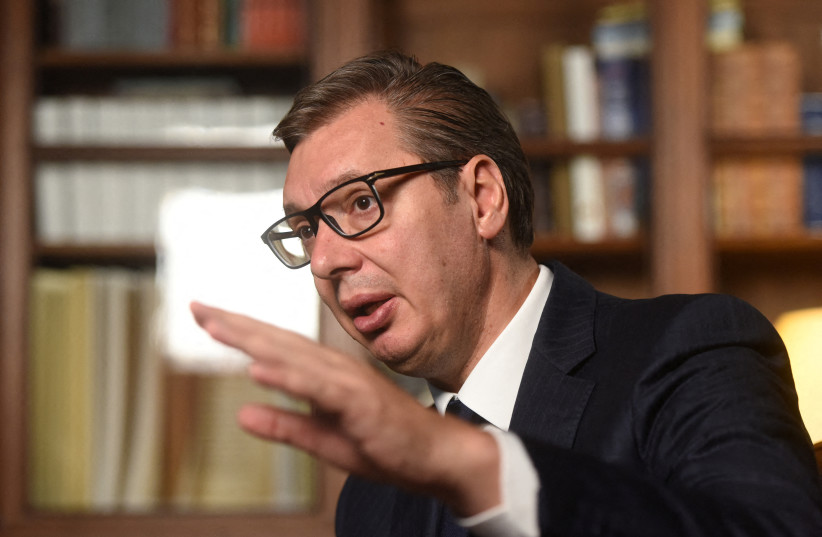Serbia, the only country in Europe that has refused to sanction Russia for its invasion of Ukraine, agreed to supply arms to Kyiv or has sent them already, according to a classified Pentagon document.
The document, a summary of European governments' responses to Ukraine's requests for military training and "lethal aid" or weapons, was among dozens of classified documents posted online in recent weeks in what could be the most serious leak of US secrets in years.
Entitled "Europe|Response to Ongoing Russia-Ukraine Conflict," the document in chart form lists the "assessed positions" of 38 European governments in response to Ukraine's requests for military assistance.
The chart showed that Serbia declined to provide training to Ukrainian forces, but had committed to sending lethal aid or had supplied it already. It also said Serbia had the political will and military ability to provide weapons to Ukraine in the future.
The document is marked Secret and NOFORN, prohibiting its distribution to foreign intelligence services and militaries. It is dated March 2, and embossed with the seal of the office of the Joint Chiefs of Staff.

Reuters could not independently verify the document's authenticity.
Serbian President Aleksandar Vucic's office and the Ukrainian embassy did not immediately respond to a request for comment.
The Pentagon also did not immediately respond to Reuters questions about the document's reference to Serbia and has previously declined to comment on any of the leaked documents.
Serbia's position on the Russia-Ukraine conflict
Vucic's government has professed neutrality in the Ukraine war, despite the country's deep historic, economic and cultural ties with Russia.
"If this document is accurate, it either shows Vucic's duplicity vis a vis Russia or he's under enormous pressure from Washington to deliver weapons to Ukraine," said Janusz Bugajski, an Eastern European expert with the Jamestown Foundation, a foreign policy institute.
The Justice Department is investigating the leak, while the Pentagon is assessing the damage done to US national security.
The Pentagon chart divided the responses to Ukraine's requests for aid into four categories: countries that had committed to provide training and lethal aid; countries that had already provided training, lethal aid or both; countries with the military ability and the political will "to provide future lethal aid."
Austria and Malta were the only two countries marked "No" in all four categories.
The disclosure of the chart comes just over a month after documents posted in a pro-Russia channel on the Telegram global messaging app purportedly showed the shipment by a Serbian arms maker of 122mm Grad ground-to-ground rockets to Kyiv in November. The documents included a shipment manifest and a Ukrainian government end-user certificate.
Moscow said in March it had asked Belgrade for an official explanation of the alleged deliveries, the state-run TASS news agency quoted Russian Foreign Ministry spokeswoman Maria Zakharova as saying.
Arms manufacturer Krusik Corp. of Valjevo denied providing rockets or other weaponry to Ukraine. Vucic called the allegations "a notorious lie."
"We didn't export any weapons or ammunition to Russia or Ukraine," he said during a March 5 visit to Qatar.
Reuters could not independently confirm the authenticity of the shipment documentation posted on Telegram.
Since the war began in February last year, Vucic has tried to balance close ties with Moscow with his goal of joining the European Union.
But Serbia is the only holdout among Europe's 44 countries in imposing sanctions on Russia.
